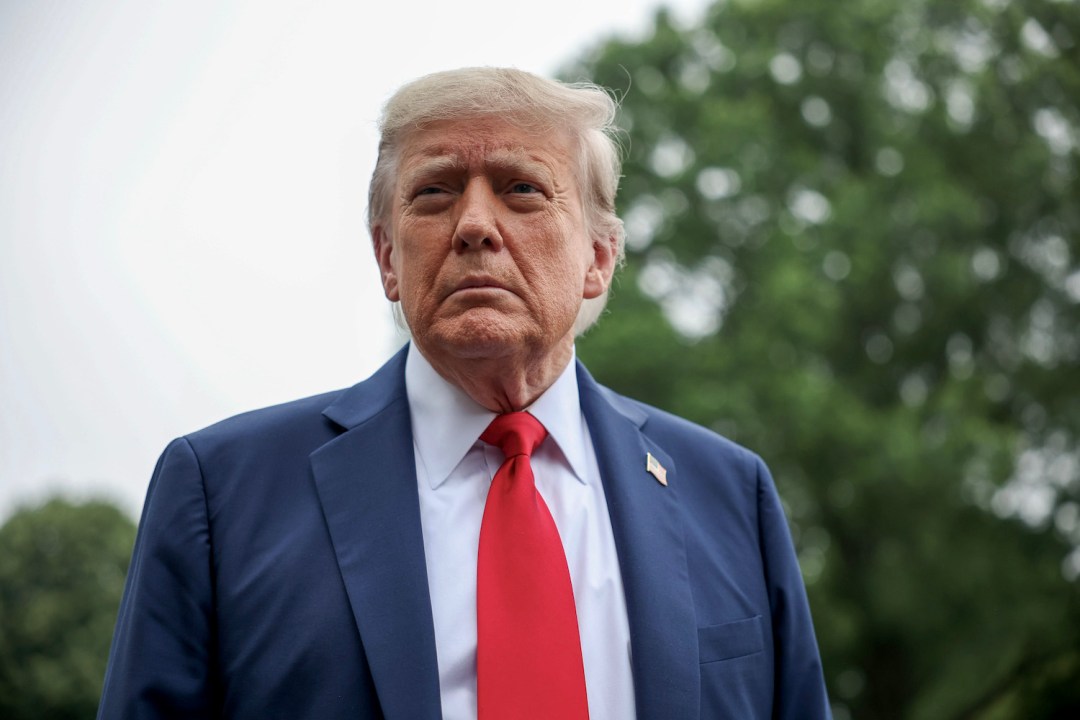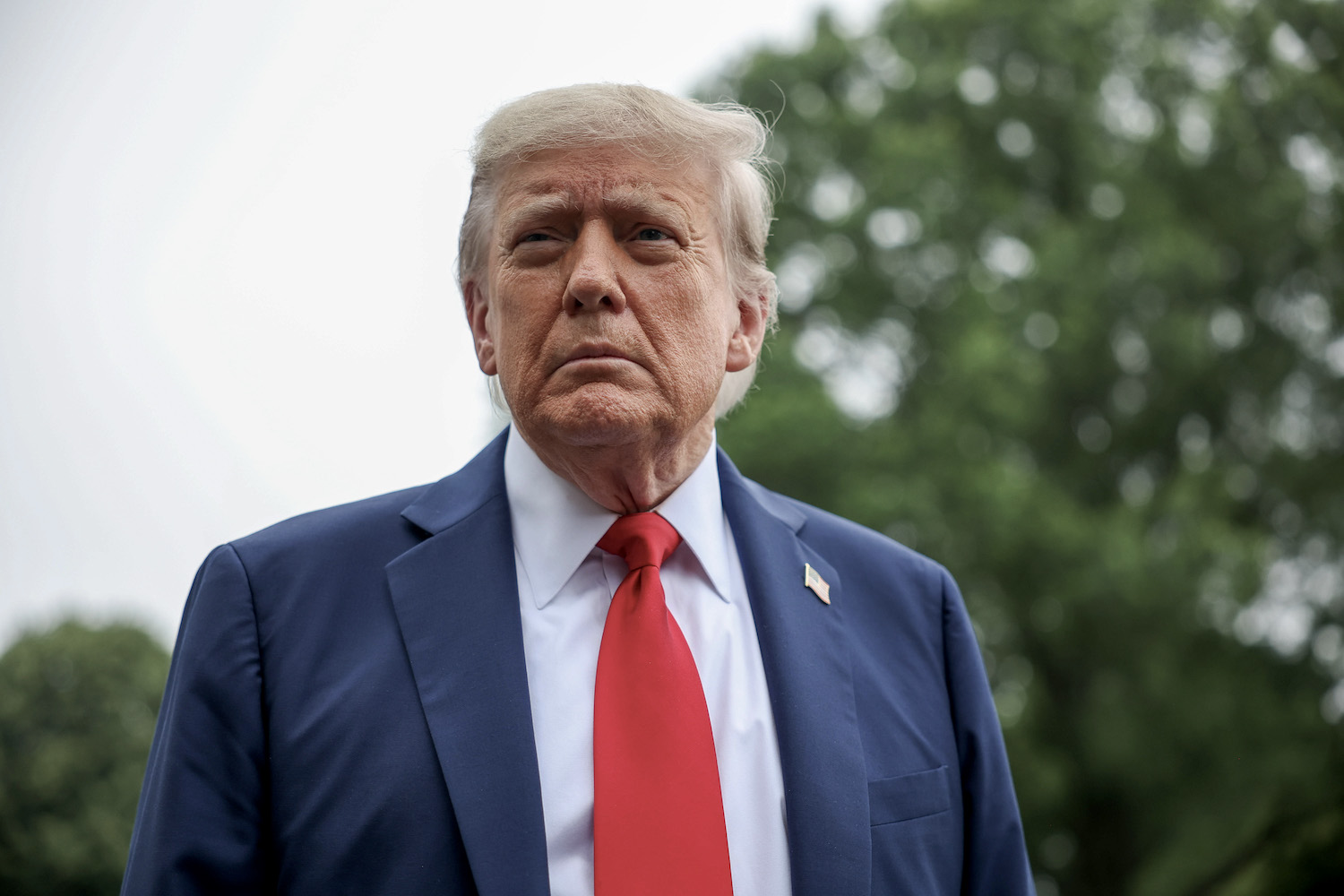There are ‘great powers’ and other powers. This is a truism of international relations thinking for those who espouse a ‘realist’ point of view. And for them, being a great power gives a state enormous advantages. Russia, for instance, was widely called a ‘great’ power before its full scale invasion of Ukraine in February 2022 while Ukraine decidedly was not. The results of that analysis were predictable. It was widely stated that Great Power Russia, led by strategic genius Vladimir Putin, was going to steamroller weaker Ukraine in a matter of days. After all, great powers were the alpha males of the international relations world, able to bully lesser powers and treat them as the playthings they supposedly were.
This idea of a great power able to dictate to lesser powers seems very much to be in Donald Trump’s playbook as well. The American President has openly weakened the US commitment to the defence of European states, claiming that Article 5 of the Nato treaty, the article which creates an obligation for mutual defence, is up for interpretation. At the same time, he has talked about annexing Greenland and ending Canadian independence by making Canada the 51st state.
Maybe the most recent example of Trump hammering US allies has been in the ongoing tariff negotiations. He has compelled the UK and Europe to accept unequal tariff relationships and is trying to secure the same with Japan, Taiwan and South Korea. As Trump recently boasted publicly about his Nato allies: ‘We [the US] have the hottest country anywhere in the world by far. And that was told to me by every leader of Nato, they do whatever I want.’
While it might make Trump, and it might have made Putin, feel emboldened to bathe in the light of their countries great power statuses – the latter has found out, and the former might soon find out, that individual powers, even great ones, need allies more than they normally understand. Arguably Russia has only been able to keep prosecuting its war against Ukraine, for instance, because of the remarkable support of its allies. It has received massive amounts of ammunition from North Korea, for instance, more ammunition than the US or European states have supplied to Ukraine. It has also seen thousands of North Korean soldiers fight on the front. From Iran it received its first Shahed drones, which have been arguably the most effective element in the Russian air war. From China, Russia has received huge numbers of components and, increasingly, even finished goods which are showing up on the battlefield.
The truth about power is that even the largest countries rarely if ever can achieve their strategic objectives on their own. They usually end up needing the power of other states – military, economic and even diplomatic, to buttress their own power and provide the extra force needed to achieve everything from victories in wars to geopolitical successes in peace.
In my new book, War and Power: Who Wins Wars and Why, I outline a new way of looking at what makes a nation powerful and how its power acts (or fails to act) in war. One of the key factors in the analysis is that focusing on individual powers themselves is almost always a mistake. Its far more important, even with the largest and seemingly most powerful states, to look at how they create and work with allies. For in the end, it is usually the stronger alliances that triumph over the actions of even the most powerful states.
As I discuss in War and Power, the two world wars were won by the stronger alliances and not the individually strongest state. During the first world war it was arguable that Germany was the single strongest state in Europe, with the most capable army that won the most battles. The German army was able to undertake feats of arms that were superior to that of almost all the other powers.
At the same time, the German economy was the largest industrial economy in Europe when the first world war started. Germany was, by a significant margin, the largest producer of steel in Europe and was catching up to the British even in the area of coal production.
In the end, the power of the allies together was simply too much
And yet, the Germans were eventually ground down by a far stronger alliance – even as they arguably kept much of their military edge throughout the war. It’s interesting to note that on both the eastern and western Fronts, the Germans were showing some serious military advantages in 1917 and even the first half of 1918. In 1917 the Germans drove the Russians out of the war with only a relatively small percentage of their army, and in the first six months of 1918 they broke the stalemate that had been on the western front since late 1914. In this latter campaign, they showed remarkable military abilities in tactical adaptation to break through the French and British trench lines. Using what was called ‘storm trooper’ tactics, the Germans were able to create large gaps in the western front, and push forward in a manner that had not been seen since the first months of 1914.
And then Germany lost the war. In the end, the power of the allies together was simply too much. Even when the Russians were forced out, the British and French, joined by the US in 1917, were able to create and deploy so much military force that in the end the Germans were ground down and both their civilian population and army cracked in late 1918.
One of the problems the Germans faced was that while the alliance they were fighting was balanced and powerful, their allies were much weaker and offered little useful support. The Austro-Hungarian Empire, the second largest state in Europe other than Russia, was not able to field a first-rate military that could compare to the British or the French, to say nothing of the Germans themselves. In the end the Austrians were in many ways more of a drag on the Germans than an asset, forcing the Germans to deploy forces to the south and east that they might otherwise have used differently.
This kind of pattern was repeated in the second world war. The Germans throughout the war exhibited great tactical military skill, even winning famous engagements in France in 1940 and in Russia in 1941. However, the fact that they were part of a much weaker alliance meant that they had little prospect of winning the war. The major German allies, from the tragically overestimated Italy of Benito Mussolini to the determined Imperial Japanese Empire, could not hope to compete in a war with an alliance involving the British Empire and the United States. The overall strength differentials of the alliance were simply too great. The allies could produce and deploy far more military equipment that the Germans, Italians and Japanese could do in return, and that meant that even though the Germans won battles (as did the Japanese in the first six months of 1942) they stood no chance of winning the war.
The importance of being part of the strongest alliance is as real in peace as it is in war. The Cold War might be the best example of this. Though the Soviet Union was the largest and most powerful state in Europe after the end of the second world war into the 1980s, its allies were a bunch of oppressed and reluctant prisoner states, also known as the Warsaw Pact. The Warsaw Pact states, from Poland in the north to Romania in the South, were ruled by imposed client Communist parties that were kept in power not with the strong support of their own societies, but with the guns and ammunition of the USSR itself. Indeed, the USSR had to invade its erstwhile allies on a number of cases, to keep their puppet regimes in power.
In the end, the Warsaw Pact states were more a drag on the USSR than they were useful. When in the late 1980s there was another round of opposition to Soviet control, this time the Soviet regime of Mikhail Gorbachev decided not to use military force to maintain their authority. When that became apparent to the peoples of eastern Europe, they almost immediately threw off the oppressions of their Soviet backed rulers – the alliance set up to protect the USSR ended up destroying it.
The reverse situation occurred with the western alliance. Though this alliance was led by the US, it was also made up of the large and economically successful states of western Europe – including Great Britain, West Germany, Italy and (most of the time) France, The combined GDP of America’s western European allies was close to that of the US itself, and as these allies were democratic and wanted to band together in mutual defence, this meant that Nato was arguably twice as strong as its largest power for much of the Cold War.
The US seems determined to alienate and humiliate
In the end, looking at the alliances involved on either side, and not just the individual ‘great’ powers, it’s clear why the Cold War ended up as it did.
For the US, you would hope that the Cold War would have been a salutary lesson on the importance of its allies, but sadly this seems not to be the case – and that alone could have disastrous implications for the country in the western Pacific, among other things.
Now the US seems determined to alienate and even humiliate states that have been its loyal allies (and often done its bidding) for well on 80 years. This makes no sense whatsoever. If the US and China, for instance, are economically close rivals, with the two largest militaries in the world, the US has a pool of powerful and economically advanced allies which could help it achieve a strategic edge over the Chinese.
Countries such as Japan (the fourth largest economy in the world), the South Koreans, Australians, Taiwanese and others, combined could support the US not just with economic force, but with significant military capabilities as well. Indeed, some of these allies seem uniquely placed to make up major US deficiencies. For instance, the US has allowed its shipbuilding industry to atrophy in recent decades – exactly as Chinese shipbuilding capabilities were starting to boom. Now, China is the largest shipbuilding country in the world, and the US hardly registers. Yet, US allies Japan and South Korea are the second and third largest shipbuilding states in the world, and could help the US strategically in this area.
In fact, it’s hard to see the US either deterring the Chinese from acting in the region, let alone winning a war, without the strong support of its allies. This makes the present US policy of weakening its alliances and casting its relationships not as a strategic grouping but as a series of zero-sum relationships in which the US is supposed to dominate other states, as weakening the US when it is supposed to Make America Great Again.
The truth is the US will never be great on its own. In the past, it was always the US as a leader of a larger alliance that secured American peace and prosperity in a strategically advantageous way. If the US turns around in a few years and realises it has no more allies, only disgruntled and humiliated former partners, it could find out quickly how far from ‘great’ it actually has become.








Comments